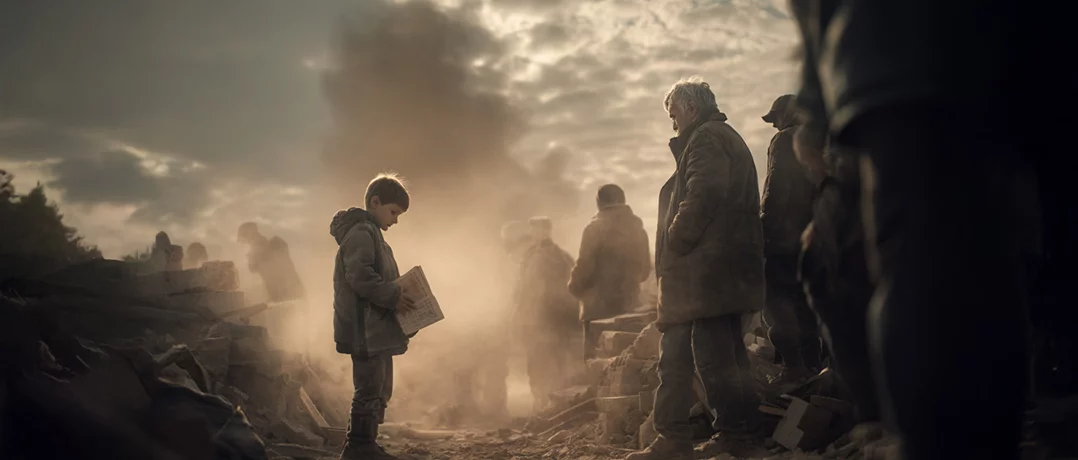A poignant look at the lasting impact of distant conflicts on a forgotten population, where survival becomes an act of resistance and peace remains a fragile hope.
The cost of wars not our own

Two years have passed since the outbreak of Gaza, and with it, Lebanon, especially southern Lebanon, has woken up once again to the familiar hum of war.
In the south, life is measured not by headlines but by the consequences of conflict: in lost homes, in children who now know where to find the nearest shelter, in the nights that are lit only by anticipation. The dividing line between Gaza and Lebanon has long been blurred and has instead been drawn in a shared memory of steadfastness and devastation.
While the world measures war in statistics, Lebanon measures it in the kind of silence that follows every explosion and never ends.
Voices from the South
To understand the human toll of these events, The Beiruter went into the field, listening to the stories of those who live closest to the border. Through their words, we captured the echoes of resilience, grief, and endurance that define life two years after the war.
I am from a steadfast village in the South Rmeish. Despite the bombings, the deaths, and the threats, we stayed on our land after October 8. We will continue to stay. That war did not destroy us, but it left its mark.
For many, the loss transcended physical destruction; it was a loss of memory and belonging. “That war shattered our dreams as people of the South and erased our history. My village was reduced to rubble, a heap of broken stones. Those ruins are my only memories of a war that ended with the surrender of those who began it.”
Yet amid despair, solidarity emerged. Many opened their homes to the displaced, sharing what little safety they had left. “During the last conflict, I sheltered families from nearby towns. Their fear, their loss, their pain it will never leave me.”
The Human Cost
“A war we neither started nor sought brought calamity upon Lebanon. Because one faction chose to enter a conflict born beyond our borders in the name of ‘support’ we paid the price: in our land, our lives, our economy, and our everyday peace.” For many Lebanese, hope itself feels precarious, a light that flickers before being consumed again by the next crisis.
Whenever Lebanon sees the light at the end of the tunnel, something always closes it. Lebanon is, and will always be, collateral damage in a larger agenda that doesn’t even include us. History repeats itself, and every generation pays the price.
Two Years On
Two years later, the South still remembers the lives lost, the homes destroyed, the communities uprooted. “It hasn’t really ended, not fully,” one resident says. “The situation is calmer now, but it feels like a fragile kind of peace.”
Lebanon remains trapped in the undertow of regional agendas, its fate written by others while its people bear the consequences.
Yet amid the ruins, the South endures. Its people cling to their land and their dignity not as an act of naïveté, but as a conscious defiance against those who would erase them. Their quiet resilience stands as both testimony and indictment a reminder that Lebanon’s wars are rarely its own, but its suffering always is.



